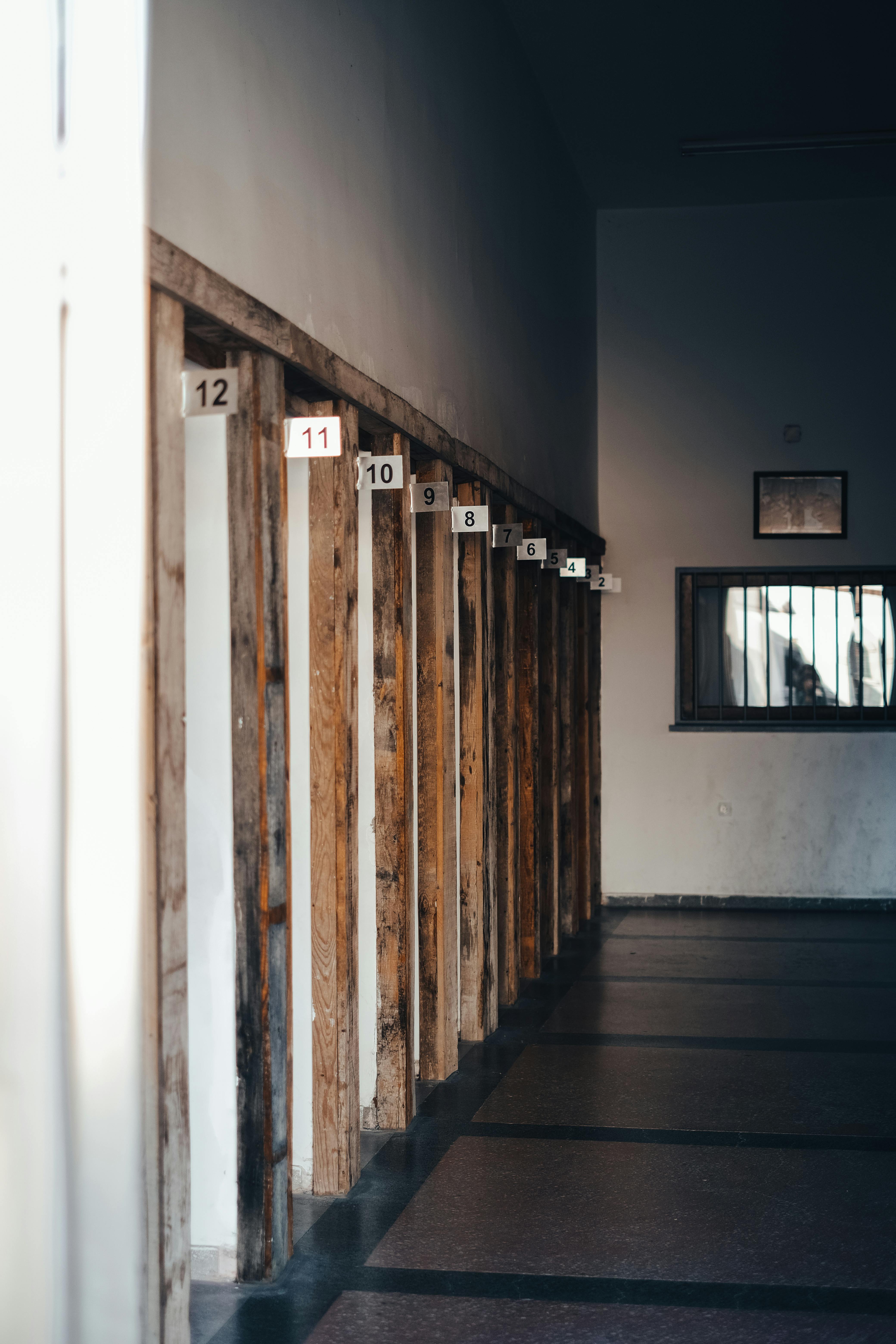Are you tired of experiencing frustrating multitask freezes on your Windows 11? You’re not alone! Many users are grappling with this annoying issue that disrupts productivity and hinders seamless performance. In this article, we’ll uncover effective solutions to fix Windows 11 multitask freezes and help you unlock the full potential of your operating system. Imagine a world where your applications run smoothly, your productivity soars, and those pesky freezes become a thing of the past.
Multitasking is a vital part of our daily digital lives, whether you’re working from home, gaming, or simply browsing the web. Windows 11, with its sleek design and powerful features, promises to enhance your multitasking experience. However, many users are left frustrated when their system freezes mid-task, causing loss of work and increased stress. So, what causes these freezes? It could be a variety of factors, including outdated drivers, insufficient RAM, or even software conflicts. Don’t worry! We will guide you through the process of identifying the root cause and implementing effective fixes.
To ensure you stay ahead of the game, we’ll explore practical tips to optimize your Windows 11 experience, from updating your drivers to adjusting your settings for maximum efficiency. Plus, we’ll provide simple troubleshooting steps that anyone can follow, so you can say goodbye to those annoying freezes for good! Ready to elevate your Windows 11 experience and boost your productivity? Let’s dive in and tackle those multitasking issues together!
Top 7 Causes of Windows 11 Multitask Freezes: Identifying the Hidden Culprits Behind Your Performance Issues

Windows 11 brought a bunch of cool new features, but with them, some users are experiencing multitask freezes that can be really frustrating. If your computer is stuttering while you’re trying to switch between apps or work on multiple things at once, you’re not alone. In this article, we’ll dig into the top 7 causes of Windows 11 multitask freezes and help you fix Windows 11 multitask freezes so you can enjoy seamless performance today!
1. Insufficient RAM
One of the biggest culprits behind multitask freezes is insufficient RAM. If your system doesn’t have enough memory, it struggles to manage multiple processes. Windows 11 recommends at least 8 GB of RAM for optimal performance. Without it, your computer may slow down significantly, especially when running memory-intensive applications.
2. Outdated Drivers
Another hidden issue can be outdated drivers. Drivers are like the translators between your operating system and hardware. If they’re not up-to-date, they might cause conflicts, leading to freezes. You can easily check for driver updates through Device Manager. Just right-click on the Start button, select Device Manager, and look for yellow exclamation marks indicating issues.
3. Heavy Background Processes
Sometimes, you may have too many background processes running, which can hog system resources. Programs like antivirus software, update services, or cloud backup apps can consume a lot of RAM and CPU. You can open Task Manager (Ctrl + Shift + Esc) to see what’s running in the background and end tasks that are unnecessary.
4. Corrupted System Files
Corrupted system files can also lead to performance issues on Windows 11, including multitask freezes. If certain core files are damaged, it can disrupt the smooth functioning of your system. Running the System File Checker (SFC) can help fix these issues. Just open Command Prompt as an administrator and type “sfc /scannow” to start the scan.
5. Overheating
Overheating is a less obvious cause but can significantly impact your computer’s performance. If your system gets too hot, it may throttle down to prevent damage, leading to freezes. Make sure your cooling system is working properly, that vents are clear, and consider using a cooling pad if you use a laptop.
6. Malware or Viruses
Malicious software can wreak havoc on your computer’s performance. Malware can run in the background, consuming resources and causing freezes. Using a trusted antivirus software and running regular scans can help keep your system clean. It’s a good habit to check for malware, especially if your computer starts acting up unexpectedly.
7. Power Settings
Your power settings can also affect how your system performs. If you’re using a power-saving mode, it can limit performance to save battery, leading to multitasking issues. Switch to a high-performance power plan in the Control Panel to ensure your hardware is running optimally.
Quick Tips to Fix Windows 11 Multitask Freezes
- Upgrade your RAM if possible.
- Regularly update your drivers.
- Monitor background processes and close unnecessary ones.
- Run the SFC scan to repair corrupted files.
- Ensure your system isn’t overheating.
- Perform regular malware checks.
- Adjust power settings for better performance.
Identifying the hidden culprits behind your performance issues can be challenging, but understanding these common causes is the first step toward a smoother experience. If you implement these strategies, you should see a significant improvement in how your Windows 11 multitasks. Whether it’s work or play, you deserve a system that keeps up with your needs.
Step-by-Step Guide: How to Fix Windows 11 Multitask Freezes in Just 10 Minutes

Dealing with freezes while multitasking on Windows 11 can be frustrating, especially when you got things to do and deadlines to meet. If your computer starts to lag or freeze when running multiple apps, don’t worry! You can fix these issues in just 10 minutes. In this step-by-step guide, we explore the causes of Windows 11 multitask freezes and how to solve them quickly and effectively.
Understanding the Causes of Multitask Freezes
Before diving in the solutions, it’s important to understand why freezes happen. Windows 11, although more advanced than previous versions, can still experience performance issues. Here are some common culprits:
- Outdated drivers and software
- Insufficient RAM for running multiple applications
- Background apps consuming resources
- Corrupted files or system errors
Knowing these factors can help you address the issue more effectively.
Step 1: Update Your Drivers
First, you should check if your drivers are up to date. Old or incompatible drivers can lead to performance problems. To do this:
- Press the Windows key + X, then select Device Manager.
- Expand each category and look for devices with a yellow triangle.
- Right-click on those devices and select “Update driver.”
Make sure to restart your computer after the updates.
Step 2: Disable Unnecessary Startup Applications
Too many programs starting at boot can slow down your system. To disable unwanted startup applications:
- Press Ctrl + Shift + Esc to open Task Manager.
- Go to the Startup tab.
- Right-click on applications you don’t need and select “Disable.”
This can free up resources for your multitasking needs.
Step 3: Increase Virtual Memory
When your RAM is low, Windows uses virtual memory to keep things running smoothly. Increasing virtual memory can help prevent freezes. Here’s how:
- Search for “Performance” in the Start menu and select “Adjust the appearance and performance of Windows.”
- Go to the Advanced tab, then click “Change” under Virtual Memory.
- Uncheck “Automatically manage paging file size for all drives.”
- Set a custom size, usually 1.5 times your RAM for initial size and 3 times for maximum size.
Click OK and restart your computer.
Step 4: Close Background Processes
Sometimes, background processes can hog resources and cause freezes. You can close unnecessary processes by:
- Opening Task Manager again (Ctrl + Shift + Esc).
- Navigating to the Processes tab.
- Identifying resource-heavy applications and right-clicking them to select “End task.”
Step 5: Run Windows Troubleshooter
Windows has a built-in troubleshooter that can identify and fix common problems. To run it:
- Go to Settings > System > Troubleshoot > Other troubleshooters.
- Find the “Windows Store Apps” troubleshooter and click “Run.”
Follow the prompts and let it do its magic.
Quick Tips for Seamless Performance
- Regularly check for Windows updates to keep your system optimized.
- Use Disk Cleanup to free up disk space.
- Consider upgrading your RAM if freezes persist.
By following these five steps, you can fix Windows 11 multitask freezes and enjoy smoother performance in no time. The key is taking a proactive approach to maintenance and staying updated on system requirements. Remember, keeping your PC healthy and running efficiently is an ongoing process, so make these practices a regular part of your computer care routine.
Unlock Flawless Multitasking: 5 Essential Tips to Prevent Windows 11 Freezes for Good

If you’re working on a project that needs multitasking, you might be familiar with the frustration of Windows 11 freezing. This can happen when you’re trying to switch between applications or run multiple programs at once. But don’t worry, there’s ways to fix Windows 11 multitask freezes and unlock seamless performance. Here are five essential tips to help you prevent those annoying freezes for good.
Keep Your Windows 11 Updated
One of the first steps to fix Windows 11 multitask freezes is ensure that your operating system is up-to-date. Microsoft regularly releases updates that fix bugs and improve performance. To check for updates, go to Settings, then Windows Update, and click on Check for updates. This simple step can save you a lot of headaches down the road.
- Open settings.
- Go to Windows Update.
- Click on Check for updates.
- Install any available updates.
Manage Your Startup Programs
Having too many programs start up when you boot your computer can cause significant slowdowns. It’s like trying to juggle too many balls at once — eventually, something’s gonna drop. To manage your startup programs, you can use the Task Manager. Just right-click on the taskbar, select Task Manager, and head over to the Startup tab. Disable any programs that you don’t need at startup.
- Right-click taskbar.
- Open Task Manager.
- Go to Startup tab.
- Disable unnecessary programs.
Optimize Your System Resources
Windows 11 multitask freezes can also be a result of low system resources. If your RAM is overloaded or your CPU is working too hard, you’ll notice lag and freezes. You can optimize your resource usage by closing any applications you’re not using. Also, consider upgrading your RAM or moving to an SSD if you haven’t done so yet. These upgrades can speed up your computer significantly.
- Close unused applications.
- Upgrade RAM if possible.
- Consider SSD for faster performance.
Run the Performance Troubleshooter
Windows 11 comes with a built-in Performance Troubleshooter that can help identify issues that may be causing freezes. To run it, go to Settings, then System, select Troubleshoot, and finally Other troubleshooters. Look for the Performance Troubleshooter and run it. This tool may not fix every problem, but it can help find some common issues.
- Open settings.
- Go to System.
- Select Troubleshoot.
- Run Performance Troubleshooter.
Check for Malware and Viruses
Sometimes, multitasking freezes can be caused by malware or viruses that are running in the background. Running a full system scan using Windows Defender or another trusted antivirus software can help catch any unwanted programs that might be hogging your system resources. Keeping your computer clean is essential for smooth multitasking.
- Use Windows Defender.
- Run full system scan.
- Remove any detected threats.
By using these five tips, you can unlock flawless multitasking and fix Windows 11 multitask freezes for good. Remember, it’s not just about preventing freezes; it’s also about maintaining overall system health for a better user experience. Regular updates, a clean startup, and resource management can make a huge difference in how smoothly your applications run.
Now you can get back to being productive without those pesky freezes interrupting your workflow. Whether you’re a student, a professional, or just someone who loves to multitask, following these tips will help keep your Windows 11 system running seamlessly.
Is Your Windows 11 Freezing? Discover 8 Proven Solutions to Restore Seamless Performance

If you’ve been experiencing frequent freezes on your Windows 11, you’re not alone. Many users face these frustrating interruptions while multitasking. But don’t worry, there are solutions to help you regain that seamless performance you once enjoyed. Here’s a look at 8 proven methods to fix Windows 11 multitask freezes and unlock your computer’s true potential.
1. Update Your Drivers
Outdated drivers can cause numerous issues, including freezing. Make sure that all your drivers, particularly graphics and chipset drivers, are up to date. You can easily check for updates by going to Device Manager, right-clicking on each device, and selecting “Update driver.”
2. Check for Windows Updates
Keeping your Windows 11 updated is crucial. Microsoft frequently releases patches and updates that address performance issues. You can check for updates by going to Settings > Windows Update > Check for updates. This could be the simplest fix to your freezing problem.
3. Free Up Disk Space
Running low on disk space can cause your system to lag or freeze. It’s essential to have enough free space for your operating system to function efficiently. You can delete unnecessary files, uninstall unused applications, or use the built-in Disk Cleanup tool.
4. Disable Startup Programs
Some programs automatically start when your computer boots, consuming valuable resources and causing slowdowns. To manage these, press Ctrl + Shift + Esc to open Task Manager, navigate to the Startup tab, and disable programs you don’t need at startup.
5. Adjust Visual Effects
Windows 11 comes with many visual effects that can slow down performance, especially on older machines. To adjust these settings, right-click on the Start button, select System, then Advanced system settings. Under Performance, click on Settings and choose “Adjust for best performance.”
6. Check Your RAM Usage
If your computer is freezing while multitasking, it might be due to insufficient RAM. Open Task Manager and check the Performance tab to see your RAM usage. If it’s consistently high, consider upgrading your RAM or closing unnecessary applications.
7. Run a Virus Scan
Malware or viruses can significantly affect your system’s performance. Running a full virus scan can help identify and remove harmful software. Use Windows Defender or a reputable third-party antivirus program to ensure your system is clean.
8. Perform a System Restore
If all else fails, restoring your system to an earlier point when it was functioning well can be a lifesaver. Go to Control Panel, search for Recovery, and select Open System Restore. Follow the prompts to set your PC back to a time before the freezing started.
Key Takeaways
- Regularly update your drivers and Windows.
- Free up disk space and manage startup programs.
- Adjust visual effects for better performance.
- Monitor RAM usage and run virus scans.
- Consider performing a system restore if needed.
These methods are designed to help you tackle the frustrating issue of Windows 11 freezing while multitasking. By implementing these solutions, you can enhance your computer’s performance and enjoy a smoother experience.
If you continue to experience issues after trying these methods, it might be a good idea to consult with a professional technician or consider more advanced troubleshooting steps. Remember, maintaining your system is crucial for optimal performance.
Maximize Your Productivity: The Ultimate Troubleshooting Checklist for Windows 11 Multitask Freezes

Maximizing productivity in today’s fast-paced digital world is essential. Windows 11 has introduced several features designed to enhance multitasking, but sometimes, you may experience frustrating freezes during crucial tasks. If you’re struggling to fix Windows 11 multitask freezes, you’re not alone. Many users in New York face this issue, and understanding the cause can be the first step to unlocking seamless performance. Here’s a comprehensive troubleshooting checklist that can help you regain control over your machine.
Understanding Multitasking in Windows 11
Windows 11 has been crafted with multitasking in mind. It provides features like Snap Layouts, virtual desktops, and improved task management. However, it’s not perfect. Users might encounter freezes due to various reasons including outdated drivers, software conflicts, or resource-heavy applications.
Common Causes of Multitask Freezes
- Outdated Drivers: When drivers are not up to date, it can lead to performance issues. Graphics and chipset drivers are particularly important.
- Resource-Heavy Applications: Running multiple applications that consume a lot of memory can overload your system.
- Malware and Viruses: Malicious software can hijack system resources, causing freezes.
- Background Processes: Some applications run background processes that may slow down your system significantly.
Troubleshooting Checklist to Fix Windows 11 Multitask Freezes
-
Update Your Drivers:
- Go to Device Manager.
- Right-click on your graphics and chipset drivers.
- Choose “Update Driver.”
-
Close Unnecessary Applications:
- Check the Task Manager (Ctrl + Shift + Esc).
- End tasks that are not needed.
-
Run a Virus Scan:
- Use Windows Defender or any reputable antivirus software.
- Schedule a full scan to check for malware.
-
Limit Background Processes:
- Open Task Manager and go to the “Startup” tab.
- Disable apps that you don’t need at startup.
-
Check for Windows Updates:
- Go to Settings > Update & Security > Windows Update.
- Check for updates and install them.
-
Adjust Visual Effects:
- Right-click on “This PC,” select “Properties.”
- Click on “Advanced system settings,” and under Performance, choose “Adjust for best performance.”
-
Increase Virtual Memory:
- Go to Control Panel > System > Advanced system settings.
- Under the Advanced tab, click on “Settings” in the Performance area.
- Go to the Advanced tab, and under Virtual Memory, click “Change.”
Additional Tips for Seamless Performance
- Use SSD: If you haven’t upgraded to SSD yet, consider it. SSDs are faster than traditional HDDs and can significantly reduce load times.
- Regular Maintenance: Regularly clean up your disk using Disk Cleanup tool to free up space.
- Check Hardware Compatibility: Ensure your hardware meets the requirements for Windows 11.
What to Do If Problems Persist
If you still encounter issues after following these steps, consider reaching out to a professional. Sometimes, hardware might be the problem, and a technician can help you diagnose any underlying issues.
In New York’s bustling environment, technology should work for you, not against you. By following this troubleshooting checklist, you can fix Windows 11 multitask freezes and maximize your productivity. Whether you are working on a big project or just browsing the web, you deserve a smooth experience. Don’t let freezes hold you back from achieving your goals.
Conclusion
In conclusion, experiencing multitasking freezes in Windows 11 can be frustrating, but several effective solutions can help restore your system’s performance. By ensuring your system is up to date with the latest patches, disabling unnecessary startup programs, adjusting visual effects, and checking for hardware issues, you can significantly reduce or eliminate these interruptions. Additionally, managing your background applications and optimizing your system settings are crucial steps in enhancing overall responsiveness. If these methods do not resolve the issue, consider seeking professional support or exploring hardware upgrades. Remember that a well-maintained system is key to a seamless multitasking experience. Don’t let freezes hinder your productivity—implement these tips today and enjoy smoother performance on your Windows 11 device. Share your experiences or additional solutions in the comments below to help others facing similar challenges.

